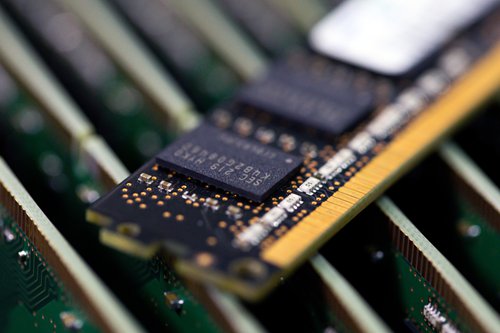HOME >> BUSINESS
Chinese firms to expand in semiconductor amid Japan-SK dispute
By Song Lin Source:Global Times Published: 2019/7/17 21:18:41

A view of Samsung Electronics' memory module Photo: VCG
South Korean semiconductor producers have been reportedly seeking alternative suppliers for a critical raw material - hydrogen fluoride, which has been placed under export controls by Japan since July 4.
Experts noted Japan's move would damage the global supply chain of semiconductors, but it would also be a chance for Chinese companies in the sector to expand their global market share and enhance their core competitiveness.
Befar Group Co, a Chinese chemical enterprise, has reportedly won orders from South Korean semiconductor companies and will start supplying hydrofluoric acid - a solution of hydrogen fluoride in water, according to a statement released by the WeChat account of China Electronic Chemical Materials Alliance.
Hydrogen fluoride is one of the critical materials for semiconductor products, which are commonly used in high-technology products, including smartphones and TVs, according to media reports.
"Japan's move was generally taken for political reasons and will damage the global semiconductor industry chain," Zhou Shijian, a senior research fellow with the Institute of International Relations of Tsinghua University, told the Global Times on Wednesday.
If China can assume the responsibility of complementing the industry chain, it will ease the development pressure for players in the industry, Zhou said.
"Japanese companies hold a relatively high market share in semiconductor materials, especially high-end products," Geng Bo, vice secretary-general of the China Solid State Lighting Alliance, a semiconductor industry association, told the Global Times on Wednesday.
Geng noted China has been supplying low- and mid-end materials for the semiconductor sector, and it's the right time for Chinese companies to upgrade their products and enhance their competitiveness.
Posted in: ECONOMY